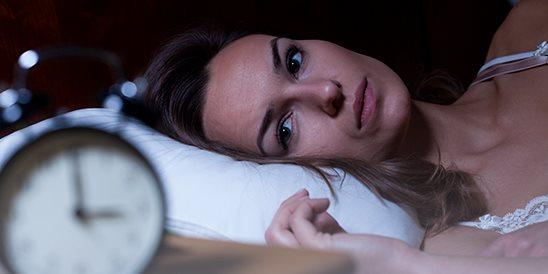Insomnia, characterized by difficulty falling or staying asleep, is a pervasive issue affecting millions of Americans. This sleep disorder can significantly impact one's quality of life, leading to fatigue, impaired cognitive function, and emotional distress. Understanding the root causes of insomnia and exploring effective treatments are crucial for addressing this widespread problem.
Root Causes of Insomnia
Insomnia can stem from a variety of factors, often intertwined, which can be broadly categorized into lifestyle-related, psychological, and medical causes.
1. Lifestyle-Related Factors:
Modern American lifestyles contribute significantly to insomnia. The increased use of technology, particularly screens emitting blue light, can disrupt circadian rhythms. The blue light from smartphones, tablets, and computers interferes with the production of melatonin, a hormone essential for sleep. Additionally, irregular sleep schedules, such as those driven by shift work or frequent travel, can disrupt the body's internal clock.
Poor sleep hygiene is another lifestyle-related factor. Consumption of caffeine and alcohol close to bedtime, as well as engaging in stimulating activities before sleep, can exacerbate insomnia. Stress and anxiety, prevalent in today's high-pressure society, further contribute to sleep disturbances.
2. Psychological Factors:
Psychological conditions such as anxiety and depression are closely linked with insomnia. Individuals with anxiety often experience racing thoughts or worry excessively, making it difficult to relax and fall asleep. Similarly, depression can disrupt sleep patterns, leading to either insomnia or excessive sleep. The interplay between these conditions and insomnia can create a vicious cycle, where poor sleep exacerbates psychological symptoms, and psychological symptoms further disrupt sleep.
3. Medical Conditions:
Certain medical conditions are known to cause or worsen insomnia. Chronic pain conditions, such as arthritis or fibromyalgia, can make it difficult to find a comfortable sleeping position. Sleep apnea, a disorder where breathing repeatedly stops and starts during sleep, can lead to fragmented sleep and daytime drowsiness. Additionally, medications used to treat various health issues, including hypertension and asthma, can have side effects that impact sleep.
Effective Treatments for Insomnia
Addressing insomnia often requires a multi-faceted approach, combining lifestyle changes, psychological interventions, and medical treatments.
1. Lifestyle Modifications:
Improving sleep hygiene is a fundamental step in managing insomnia. Establishing a regular sleep schedule by going to bed and waking up at the same time each day helps regulate the body's internal clock. Creating a calming bedtime routine, such as reading a book or taking a warm bath, can signal to the body that it's time to wind down. Reducing exposure to screens and bright lights in the hour before bed can also help.
Dietary adjustments play a role in sleep quality. Limiting caffeine and alcohol intake, especially in the hours leading up to bedtime, can prevent disturbances. Incorporating relaxation techniques, such as deep breathing or progressive muscle relaxation, can reduce stress and promote better sleep.
2. Cognitive Behavioral Therapy for Insomnia (CBT-I):
Cognitive Behavioral Therapy for Insomnia (CBT-I) is a well-established, evidence-based treatment that addresses the thoughts and behaviors contributing to insomnia. CBT-I involves several components, including cognitive restructuring to challenge and change unhelpful beliefs about sleep, and behavioral techniques to establish healthy sleep patterns. Sleep restriction therapy, a component of CBT-I, involves limiting time spent in bed to increase sleep efficiency.
Studies have shown that CBT-I is highly effective in improving sleep and reducing insomnia symptoms. It is often preferred over medication as it addresses the root causes of insomnia and provides long-term benefits.
3. Pharmacological Treatments:
Medications for insomnia can be effective for short-term relief but are generally not recommended as a long-term solution due to potential side effects and dependency risks. Commonly prescribed sleep aids include benzodiazepines and non-benzodiazepine sedatives, such as zolpidem. Over-the-counter options, like antihistamines, are also available but may cause drowsiness the next day or have other side effects.
When considering medication, it is important to consult a healthcare professional to evaluate the potential benefits and risks. Medication should be used in conjunction with behavioral and lifestyle changes to achieve the best outcomes.
4. Addressing Underlying Medical Conditions:
For individuals with insomnia related to medical conditions, managing the underlying health issue is crucial. For instance, treating sleep apnea with continuous positive airway pressure (CPAP) therapy can improve sleep quality. Consulting with healthcare providers to adjust medications that may be contributing to insomnia can also be beneficial.
Conclusion
Insomnia is a complex and multifaceted issue impacting many Americans. By understanding the root causes—ranging from lifestyle factors to psychological conditions and medical issues—individuals can take informed steps toward improving their sleep. Effective treatments, including lifestyle modifications, Cognitive Behavioral Therapy for Insomnia (CBT-I), pharmacological options, and management of underlying medical conditions, offer hope for relief. Addressing insomnia comprehensively can lead to better sleep, improved quality of life, and overall well-being.

